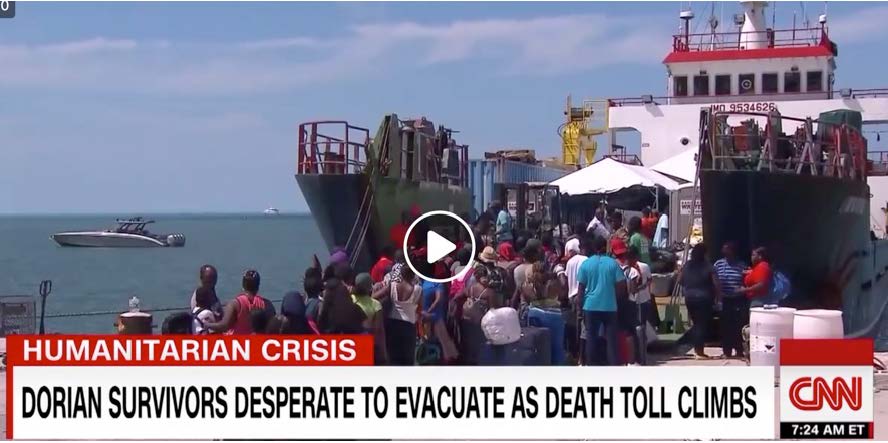Dorian: Temporary Displacement or Diaspora?

The images of tens of thousands of people displaced from their homes on Abaco and Grand Bahama bring the scale of the disaster to home, particularly for me, having lived there for decades. There are some 70,000 people whose lives were upended; the number of dead is still unknown; people who lost everything are trying desperately to find ways off the islands. Like thousands of people I have donated to relief agencies and even sent supplies.
But there is another perspective that comes to me as I watched the images of people trying to leave. Besides the immediate disaster, with people being temporarily displaced, I suspect some of these people will never return. It reminded me of the tens of thousands of Puerto Ricans who fled and came to the mainland U.S. after Hurricane Maria decimated that island two years ago. It is reasonable to assume that thousands of Puerto RIcans and Bahamians will not to return to their homes and communities.
People are seeing new levels of these disastrous weather related events and greater frequency. Two years ago, Puerto Rico got the “1-2 punch” in quick succession. With Dorian, Grand Bahama Island has had two Cat 5 hurricanes not only hit the island, but both to stall there for more than a day. In my three decades living there, we only had two modest hurricane encounters. This is the fifth year in a row with a Cat 5 hurricane in the North Atlantic. That by itself is a record. It is becoming clear that these are likely not isolated “freak events.” People will avoid putting their families in harm’s way.
Better design, engineering, and construction of buildings and infrastructure will help. Also better preparedness for emergencies. But as we are seeing, if the frequency and magnitude are like these events, it changes the “reputation” and image of a location. That will affect the sense of risk associated with rebuilding homes and communities. People will think twice about returning to sites of repeat devastation and new patterns of weather related disasters. Rising sea level will add to the challenges.
Diaspora is the term to describe populations of people that are permanently displaced from their traditional location. Storms of this power and growing frequency suggest that there is temporary displacement as well as diaspora.
We are living in a new era, where we not only have to deal with the emergency of weather related events, but also deal with the social impacts of climate refugees.
